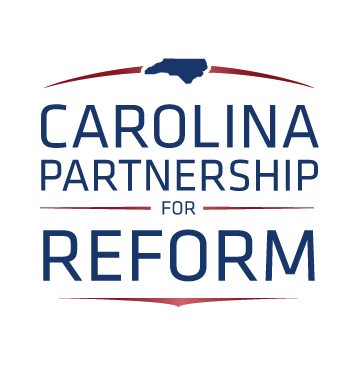N.C. State Requires DEI Statements from Student Applicants
Only school in the UNC System to require a DEI statement
Princeton University prof: “There are a lot of similarities between these diversity statements as they’re being applied now and [McCarthy-era] loyalty oaths”
N.C. State University requires prospective students to explain how they intend to “contribute to a more diverse and inclusive N.C. State environment” if granted admission:
NC State University is committed to building a just and inclusive community, one that does not tolerate unjust or inhumane treatment, and that denounces it, clearly and loudly. Please describe what those words mean to you and how you will contribute to a more diverse and inclusive NC State environment.
By our analysis, it’s the only university in the UNC System to include such a requirement on its undergraduate application.
We can’t divine the intent of N.C. State’s application writers or the admissions officer who evaluates these statements to determine which students earn acceptance.
But we can render a pretty good guess on the impact: N.C. State’s DEI prompt almost certainly stops qualified and intelligent high school students who would have applied but for that question from entering N.C. State’s applicant pool.
More ominously, it may keep qualified and intelligent high school students who answer the question honestly, but in a way that doesn’t adhere to N.C. State’s DEI orthodoxy, from being accepted at all.
A popular (and nonpolitical) podcast that offers parents advice for helping their children navigate college admissions called the question “the loudest, most vocal, bold, even brazen” example of a DEI statement requirement they’ve seen in the admissions process.
Dissent Has No Place Here
In our view, the problem isn’t in the words themselves. One can imagine a broad array of potential responses to that question that fit well within the wide bounds of reasonable discourse.
The problem is two-fold: 1) The prompt is ripe for admissions officers to enforce intellectual conformity and root out students who don’t buy into social justice or critical theory dogma; and 2) It forces more sophisticated applicants to feign adherence to the doctrine that oozes from every word of that prompt.
On both counts, the question “clearly and loudly” discourages dissent from the prevailing orthodoxy that we’ve warned about for the past two months.
Start with problem one first. The prompt requires students to support a “just and inclusive community.” But what qualifies as “just and inclusive” is in the eye of the beholder – in this case, an admissions officer.
One can imagine a host of responses that a DEI-oriented admissions officer would find problematic. Here are some examples:
I will contribute to a more diverse N.C. State by loudly and boldly asserting my belief that DEI initiatives have zero impact on actually advancing diversity, and may even have negative impacts. I believe this based on research conducted by Harvard University’s Roland Fryer, who received a MacArthur “Genius” grant for his previous work. I intend to share my perspective in class and during DEI training sessions.
Former President Barack Obama said in his landmark 2004 DNC address, “Go into any inner-city neighborhood, and folks will tell you that government alone can’t teach kids to learn…That children can’t achieve unless we raise their expectations and turn off the television sets and eradicate the slander that says a black youth with a book is acting white.” I will use my training at N.C. State to work towards a more just future by building on research into cultural explanations, including “acting white,” for racial gaps in educational attainment.
We don’t know if those arguments are right or wrong, but we do know they’ve been advanced by former presidents and Ivy League economists, and that they belong within the realm of acceptable university discourse.
But just Google that passage from Obama’s 2004 speech and you’ll find pages and pages of vicious denunciations. The same goes for Roland Fryer.
It’s not hard to see how an admissions officer would conclude such views violate N.C. State’s “just and inclusive” mission, especially because they dissent from the ideology expressed on N.C. State’s own website.
You might think that only a fool would respond to the admissions prompt in that way, and you’re probably right. Which brings us to the second problem.
Does the Admissions Prompt Improve or Worsen Self-Censorship?
Most, if not all, prospective applicants who really think through the purpose of the prompt would craft a response that admissions officers want to hear. Either that, or the students will just not apply.
As the podcasters quoted at the top said, “If [admissions officers] get a response that is either just veiled platitudes or even just a ‘meh’ response…then [they’ll] pass, move onto the person that has a different reaction.”
It certainly is a special form of brazen to impose an admissions requirement of this sort right after the UNC System’s own survey concluded, “We find that a significant number of students have concerns about stating their sincere political views in class and have self-censored because they were concerned about the potential reactions.”
It’s this exact problem that Princeton University’s Keith Whittington addressed when he said this month, “There are a lot of similarities between these diversity statements as they’re being applied now and how [McCarthy-era] loyalty oaths worked.”
At bottom, N.C. State has to decide whether the benefits of requiring DEI statements from students outweigh the impacts on intellectual diversity and the fraught implications for admissions decisions.
In our view, there are plenty of other ways N.C. State can weed out actual white supremacists from its applicant pool if that is truly their goal.
But if their goal is to create a student body devoid of intellectual diversity and creativity, a student body that is indoctrinated into a way of thinking instead of being taught how to think, then a forceful, “brazen” DEI requirement clearly serves N.C. State’s purpose.

